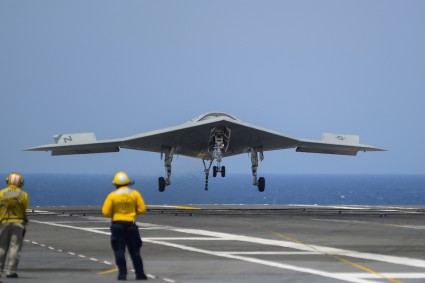
Robohub.org
America’s dominance in military robotics is starting to crumble

Foreign Policy Magazine's recent examination of “The Looming Robotics Gap” by University of Pennsylvania International Relations Associate Professor Michael C Horowitz, and recent Pentagon insider on national security issues, is an up-to-date review of the world-wide state of military robotics.
Besides comparing Chinese and American look-alike unmanned flying robots that can land on an aircraft carrier, and Chinese, Israeli, and American Reaper look-alike high-flying surveillance bombers, Horowitz describes the attitudes (sensitivities), direction, and budgeting hold-ups and cuts thwarting America's ability to sustain its leadership while having to absorb a 33% drop in technology investment.
Companies such as Google have set their sights on developing consumer robotics to serve and fuel an international market that some estimate will generate $37 billion in annual sales by 2018. These commercial developments could have military ramifications. As automated technology becomes increasingly easy to procure, small militaries and even nonstate actors will be able to exploit robotics for military ends.
For example, the commercial sector is leading the way in developing automated driving technology, and the software that governs a self-driving car might well facilitate the design of a remotely driven tank. As off-the-shelf robotics become increasingly advanced, it will become easier for foreign militaries to close the gap in capabilities with the United States.
More sinister is the possibility that commercially available robotics will make cutting-edge technologies available to terrorists. Even now, do-it-yourself drone technology is widely available, used by ordinary citizens and companies for everything from monitoring wildlife to filming snowboarders. In April, the FBI stopped a Moroccan citizen in the United States who allegedly was plotting to strap bombs onto simple consumer drones and fly them into a federal building.
Perhaps the biggest transition I could glean from the Horowitz article was the reversal from the past DARPA investment formula of solving scientific problems to enhance future military use, then to transfer the technology over to the commercial sector, to a newer formula taking advantage of commercial investment (such as that done by Google) to military adaption alongside commercial development.
“The Looming Robotics Gap” is a worthwhile read.
tags: c-Military-Defense, cx-Aerial


